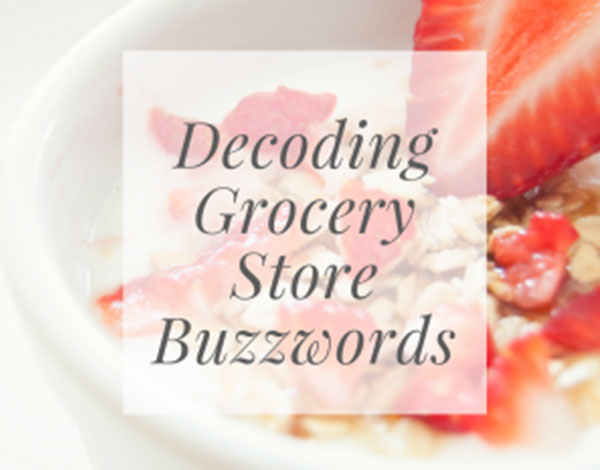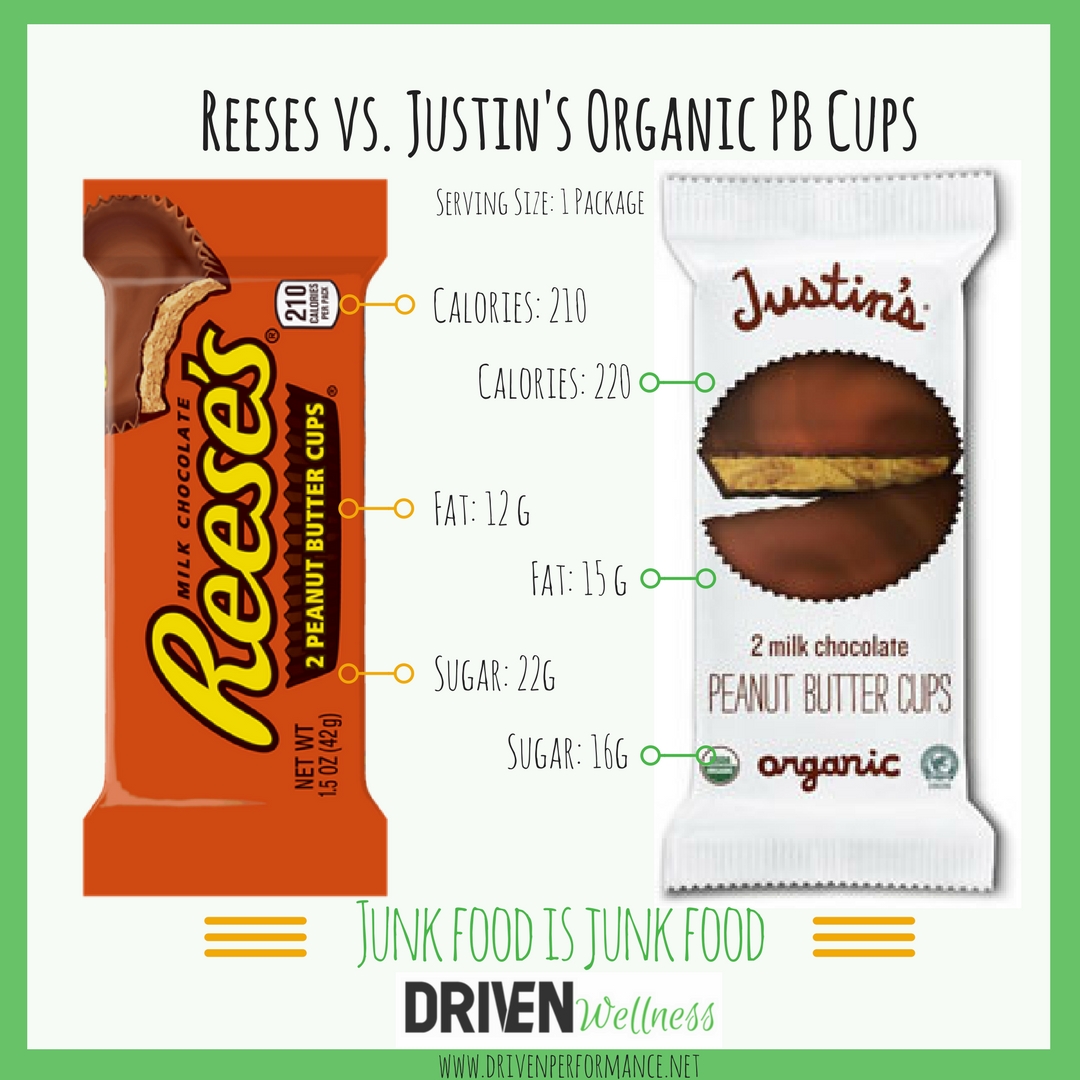Decoding Grocery Store Buzzwords

Time to play grocery store detective. Gluten free, all natural, fat free, sugar free, are just some of the few confusing and misleading buzzwords that are plastered all over the grocery store. Don’t fall victim to marketing buzzwords used by food manufacturers to make their products seem “healthier” than they really are. For example, organic junk food is still junk food.

Here is a guide to some common nutrition lingo and what each label really means:
- Natural– There is currently no formal definition of the use of “natural” on food labels by the U.S. Food and Drug Administration (FDA) or U.S. Department of Agriculture (USDA). These two organizations oversee all the safety and regulation of foods in the U.S. Although there is no formal definition, the FDA accepts the use of “natural” to refer to foods free of added color, artificial flavors or synthetic substances and that are minimally processed.
- Organic– This term has more specific criteria and legal meaning. Meat, poultry, eggs and dairy products must come from animals that are not given any antibiotics or growth hormones. All organic plant foods must be produced without using most conventional pesticides and fertilizers. In order for a farm to be certified to produce organic foods, they must pass a USDA inspection.
- 100% Organic- products are completely organic or made of only organic ingredients and qualify for a USDA organic seal.
- Organic- products are made up of at least 95% organic ingredients
- Made with organic ingredients- made up of at least 70% organic ingredients
- Gluten Free– A food that has less than 20 parts per million of gluten. What the heck does that mean? Basically, gluten free food can actually have a very small amount of gluten in it and still be considered “free of gluten” or “no gluten”. Be careful, GLUTEN FREE DOES NOT MEAN HEALTHY! Those with a gluten intolerance such as celiacs disease or IBS must avoid gluten due to GI distress. For others without an intolerance, gluten is just a structural protein found in wheat, barley and rye that studies have shown do not cause negative affects. When gluten is taken out of a product, manufacturers must add other sugars and artificial ingredients to the product to maintain the texture and taste of the product. In conclusion, just because the item says gluten free does not mean it’s healthier for you and could actually contain a lot more added junk.
- Whole- There is no regulation on this term. “Whole” foods generally refer to foods that are not processed or refined but this label does not mean guaranteed quality regulation from the FDA or USDA.
- Good or Excellent Source of- If a food contains 10-19% of the recommended daily value of a certain nutrient, it can be considered a good source of that nutrient. In order to be considered an excellent source it must provide 20% of the daily value.
- Fat Free- Foods that contain less than 0.5 grams of fat per serving. Don’t be fooled, these foods can still have small amounts of fat in them. Pay close attention to the ingredient label also! A majority of the time manufacturers add extra sugars or other artificial ingredients to make up for the taste and texture difference from the reduction in fat.
- Light or Lite- A variation of the original product that has at least half the amount of fat compared to the original version. Again, look at the ingredient label to see if anything else was added.
- Sugar Free- Food that has less than 0.5 grams of sugars per serving. Typically sugar free products will be sweetened by artificial sweeteners.
Confusing right? These are just a few of the buzzwords you will run into at the store. Also, watch out for “puffer” claims that are also used to confuse consumers such as “world’s best cereal” or “better than the leading brand”. These are incomplete comparisons that don’t identify which competitor they are actually comparing their product to. Now that you’ve had a nutrition lingo 101 course, you can use this information to help guide your choices at the grocery store and identify terms that won’t make much difference in your diet.
And if you need more support making food choices to match your health and nutrition goals. Contact the dietitians at hello@drivenaustin.com or schedule a free nutrition mini-session (HERE), reach your health and fitness goal in a healthy, sustainable way
SHARE IT

